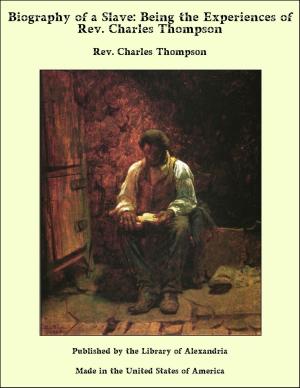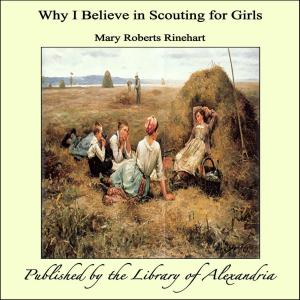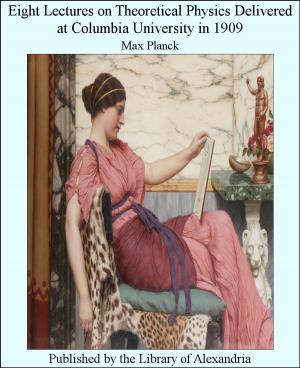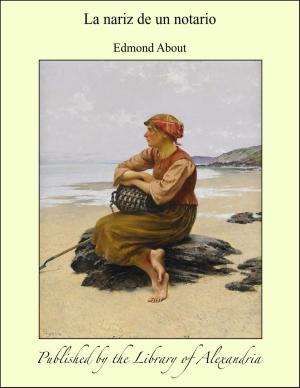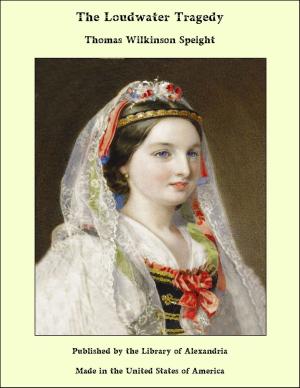| Author: | Anne Douglas Sedgwick | ISBN: | 9781465538345 |
| Publisher: | Library of Alexandria | Publication: | March 8, 2015 |
| Imprint: | Language: | English |
| Author: | Anne Douglas Sedgwick |
| ISBN: | 9781465538345 |
| Publisher: | Library of Alexandria |
| Publication: | March 8, 2015 |
| Imprint: | |
| Language: | English |
Miss Althea Jakes was tired after her long journey from Basle. It was a brilliant summer afternoon, and though the shutters were half closed on the beating Parisian sunlight, the hotel sitting-room looked, in its brightness, hardly shadowed. Unpinning her hat, laying it on the table beside her, passing her hands over the undisordered folds of her hair, Miss Jakes looked about her at the old-gold brocade of the furniture, the many mirrors in ornate gold frames, the photographs from Bougereau, the long, crisp lace curtains. It was the same sitting-room that she had had last year, the same that she had had the year before last—the same, indeed, to which she had been conducted on her first stay at the Hôtel Talleyrand, eight years ago. The brocade looked as new, the gilded frames as glittering, the lace curtains as snowy as ever. Everything was as she had always seen it, from the ugly Satsuma vases flanking the ugly bronze clock on the mantelpiece, to the sheaf of pink roses lying beside her in their white paper wrappings. Even Miss Harriet Robinson's choice of welcoming flowers was the same. So it had always been, and so, no doubt, it would continue to be for many years to come; and she, no doubt, for many summers, would arrive from Basle to sit, jadedly, looking at it. Amélie, her maid, was unpacking in the next room; the door was ajar, and Miss Jakes could hear the creaking of lifted trays and the rustling of multitudinous tissue-paper layers. The sounds suggested an answer to a dim question that had begun to hover in her travel-worn mind. One came back every summer to the Hôtel Talleyrand for the purpose of getting clothes; that, perhaps, was a sufficient answer. Yet, to-day, it did not seem sufficient. She was not really so very much interested in her clothes; not nearly enough interested to make them a compensation for such fatigue and loneliness as she was now feeling. And as she realised this, a Further question followed: in what was she particularly interested? What was a sufficient motive for all the European journeyings with which her life, for the past ten or twelve years, had been filled? In a less jaded mood, in her usual mood of mild, if rather wistful, assurance, she would have answered at once that she was interested in everything—in everything that was of the best—pictures, music, places, and people.
Miss Althea Jakes was tired after her long journey from Basle. It was a brilliant summer afternoon, and though the shutters were half closed on the beating Parisian sunlight, the hotel sitting-room looked, in its brightness, hardly shadowed. Unpinning her hat, laying it on the table beside her, passing her hands over the undisordered folds of her hair, Miss Jakes looked about her at the old-gold brocade of the furniture, the many mirrors in ornate gold frames, the photographs from Bougereau, the long, crisp lace curtains. It was the same sitting-room that she had had last year, the same that she had had the year before last—the same, indeed, to which she had been conducted on her first stay at the Hôtel Talleyrand, eight years ago. The brocade looked as new, the gilded frames as glittering, the lace curtains as snowy as ever. Everything was as she had always seen it, from the ugly Satsuma vases flanking the ugly bronze clock on the mantelpiece, to the sheaf of pink roses lying beside her in their white paper wrappings. Even Miss Harriet Robinson's choice of welcoming flowers was the same. So it had always been, and so, no doubt, it would continue to be for many years to come; and she, no doubt, for many summers, would arrive from Basle to sit, jadedly, looking at it. Amélie, her maid, was unpacking in the next room; the door was ajar, and Miss Jakes could hear the creaking of lifted trays and the rustling of multitudinous tissue-paper layers. The sounds suggested an answer to a dim question that had begun to hover in her travel-worn mind. One came back every summer to the Hôtel Talleyrand for the purpose of getting clothes; that, perhaps, was a sufficient answer. Yet, to-day, it did not seem sufficient. She was not really so very much interested in her clothes; not nearly enough interested to make them a compensation for such fatigue and loneliness as she was now feeling. And as she realised this, a Further question followed: in what was she particularly interested? What was a sufficient motive for all the European journeyings with which her life, for the past ten or twelve years, had been filled? In a less jaded mood, in her usual mood of mild, if rather wistful, assurance, she would have answered at once that she was interested in everything—in everything that was of the best—pictures, music, places, and people.


